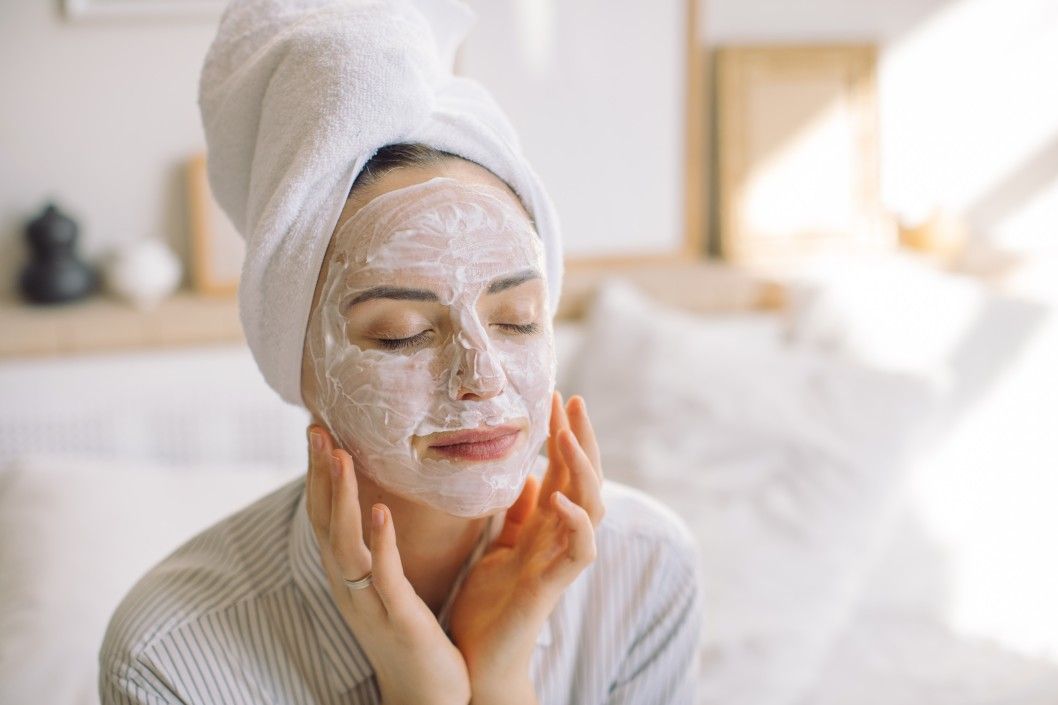Does it ever feel like you’ve lost your mojo?
You used to identify as a confident person. You were ready for anything that life threw your way.
Now you find yourself shying away from new challenges and sticking to your comfort zone. You’re stuck in a pattern of negative self-talk and aren’t living a healthy lifestyle.
Chances are, you need to work on your self-love.
Things to know
- Self-love is about acknowledging your flaws and forgiving yourself for them, accepting your authentic self and finding peace, having a growth mindset that fights negative thoughts and cultivates a positive self-image.
- Self-love is important because it gives you space to embrace who you truly are, it is freeing, and this can build confidence better than anything else.
- To build self-love, practice gratitude journaling, challenging themselves, focusing on physical health, and caring for your mental health.
Read on to find out the real meaning of self-love, why it's important for your self-confidence, and how to build it up:
- What Is Self-Love?
- Why Is Self-Love Important?
- How Self-Love Builds Confidence
- How To Build Confidence and Self-Esteem In Adults
- Growing Confidence Requires Effort
What Is Self-Love?
Self-love isn’t what it sounds like.
It’s not about narcissism or acting selfishly. It’s just the opposite.
Self-love means acknowledging your flaws and forgiving yourself for them. It’s about accepting your authentic self and finding peace. It’s a growth mindset that fights negative thoughts and intentionally cultivates a positive self-image.
But why does loving yourself matter?
Why Is Self-Love Important?

When we lack self-love, we focus more on ourselves. We become so absorbed in all the ways we’re falling short that we have no room to think about others.
When you embrace who you truly are, it gives others space to do the same.
The act of loving yourself is freeing. When you’re not preoccupied with your own shortcomings, it opens you up to fully care for the people in your life.
But the person with the greatest positive outcome from self-love is you. The reason? It can build confidence better than anything else.
How Self-Love Builds Confidence
Many people mistakenly think that you need to eliminate all your flaws before you can become a confident person. But this is a limiting belief.
If you wait until you’re perfect to feel good about yourself, you never will. It’s impossible.
Self-love means radical acceptance of who you are in this very moment. It permits you to feel confident in who you are now, not who you could eventually become.
Knowing you are imperfect and loving yourself regardless is a key building block of self-confidence.
So you know self-love is vital to your confidence, self-esteem, and relationships. But how do you love yourself when you’re just not feeling it?
How To Build Confidence and Self-Esteem In Adults

Are you not feeling the self-love? There are lots of healthy habits you can pick up to build confidence. Even if you already have a positive self-image, working on your self-esteem can help you reach your full potential.
Try these self-love techniques to start embracing all the benefits that building confidence has to offer:
Gratitude journal
When you think of self-love, being thankful probably isn’t the first thing that comes to mind.
But a gratitude journal can be a powerful tool in your self-confidence wheelhouse. Keeping track of all the little things you appreciate about your life can have a surprising impact on how you feel about yourself.
Researchers agree. Studies show a strong, positive relationship between healthy self-esteem and gratitude. When we pay attention to all the good things we have going for us, we feel like we’re doing well in life. This contributes to a positive self-image overall.
To get started with a gratitude journal, try listing ten things you’re thankful for today. Once you feel the soothing effects, you won’t want to drop the habit.
Challenge yourself

No one ever became a confident person from staying in their comfort zone. Actually, people with high self-esteem are more likely to face new challenges than individuals who struggle with low self-confidence.
This is because being confident means embracing a growth mindset. Positive thinking is an integral part of healthy self-esteem. But nothing compares to overcoming obstacles and proving to yourself that you can do it.
Confronting a difficult situation empowers us to believe that we can succeed the next time, too. Each time you challenge yourself, you learn a new skill and build confidence.
Face a fear you’ve been avoiding, big or small. You’ll be amazed by the instant boost in self-love.
Focus on physical health
You might be surprised to discover the connection between physical health and higher self-esteem. Regular exercise and healthy kitchen habits can contribute significantly to your confidence.
Eating well and caring for yourself can help you form a positive body image.
Feeling good about your physical appearance can increase your self-confidence in social situations, which in turn can lead to better friendships, career opportunities, and even leadership skills. All of these factors can help you achieve high self-esteem.
And it’s more than just good looks. Your internal well-being directly impacts your mental health. Embracing a healthy lifestyle gives you energy, boosts your mood, and lowers stress and depression. Those feel-good endorphins can erase negative thoughts and dramatically improve your self-confidence.
Set goals to improve your diet and fit in more movement every day. The benefits to your self-image will speak for themselves.
Care for your mental health

Low self-esteem isn’t a mental illness, but the two are proven to be closely related.
When we are experiencing a lack of confidence, we tend to make poor decisions in other areas of life. Over-indulging in food or alcohol, sleeping too much, and withdrawing from social situations can all be caused by self-esteem issues. They can also harm your mental health.
This creates a vicious cycle if you’re in a destructive pattern. But the good news is that healing one also improves the other. Actively practicing self-love can alleviate symptoms of eating disorders, depression, and even substance abuse.
Likewise, if you want to build higher self-esteem, consider seeking professional help for your struggles. Seeing a clinical psychologist can serve a dual purpose of improving your mental health and growing your confidence.
Positive self-talk
Have you ever paid attention to the way you talk to yourself?
Is it kind? Do you forgive your mistakes and appreciate your accomplishments? Or is it negative self-talk? Are you hard on yourself and pick apart everything you say and do?
It might not seem significant, but the way you treat yourself actually has a major impact on your self-confidence. There is a proven link between negative beliefs about your abilities and mental health ailments like depression and anxiety.
On the flip side, positive self-talk has been shown to build confidence, reduce negative thinking, and help people cope with stress.
If you’re hard on yourself, you might find a positive outcome from cognitive behavioral therapy. This strategy encourages us to flip our negative thoughts into positive affirmations. Changing a limiting belief like “I ruin everything ” into “I learn from my mistakes” can have a massive impact on your overall self-love.
Practice daily affirmations

Another great way to fight poor self-confidence and negative self-talk is to add positive affirmations to your daily routine. These are short statements that lift you up and inspire you to shift your mindset toward personal love and acceptance.
Here are some of the most powerful self-love and confidence affirmations you can practice. Find the ones that most resonate with you and write them down.
Speaking these mantras out loud every day can transform your negative self-talk into a positive self-image:
Self-love and confidence affirmations
I am worthy of everything good.
I inhale confidence and exhale fear.
I accept myself completely.
I have endless potential.
I am braver and stronger than I realize.
I have the power to overcome any challenge.
I fully embrace who I truly am.
My authentic self is powerful and worthy.
My peace is my number one priority.
I am healed, and I am whole.
My mistakes do not define me.
I am my own biggest cheerleader.
I cherish the things that make me unique.
My imperfections are my greatest blessings.
I choose to love myself unconditionally.
Growing Confidence Requires Effort

Gaining confidence is a lifelong journey. We never reach a final destination where we fully love who we are.
If you want to become a confident person, it takes hard work. Adopting a growth mindset can be challenging, especially when it feels like nothing is going right for us. It’s hard to see yourself in a positive light in the middle of a difficult situation.
But the best way to start overcoming your negative beliefs is to consciously embrace self-love.
Set goals to add one of these confidence-building techniques into your routine every day. Pretty soon, the positive affirmations and healthy lifestyle you’re focusing on will start to pay off.
Once you start feeling the positive effects, there will be no question in your mind that self-love can build confidence.









